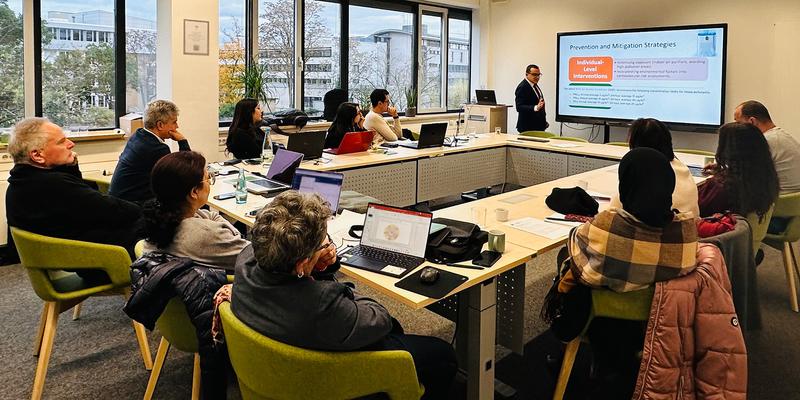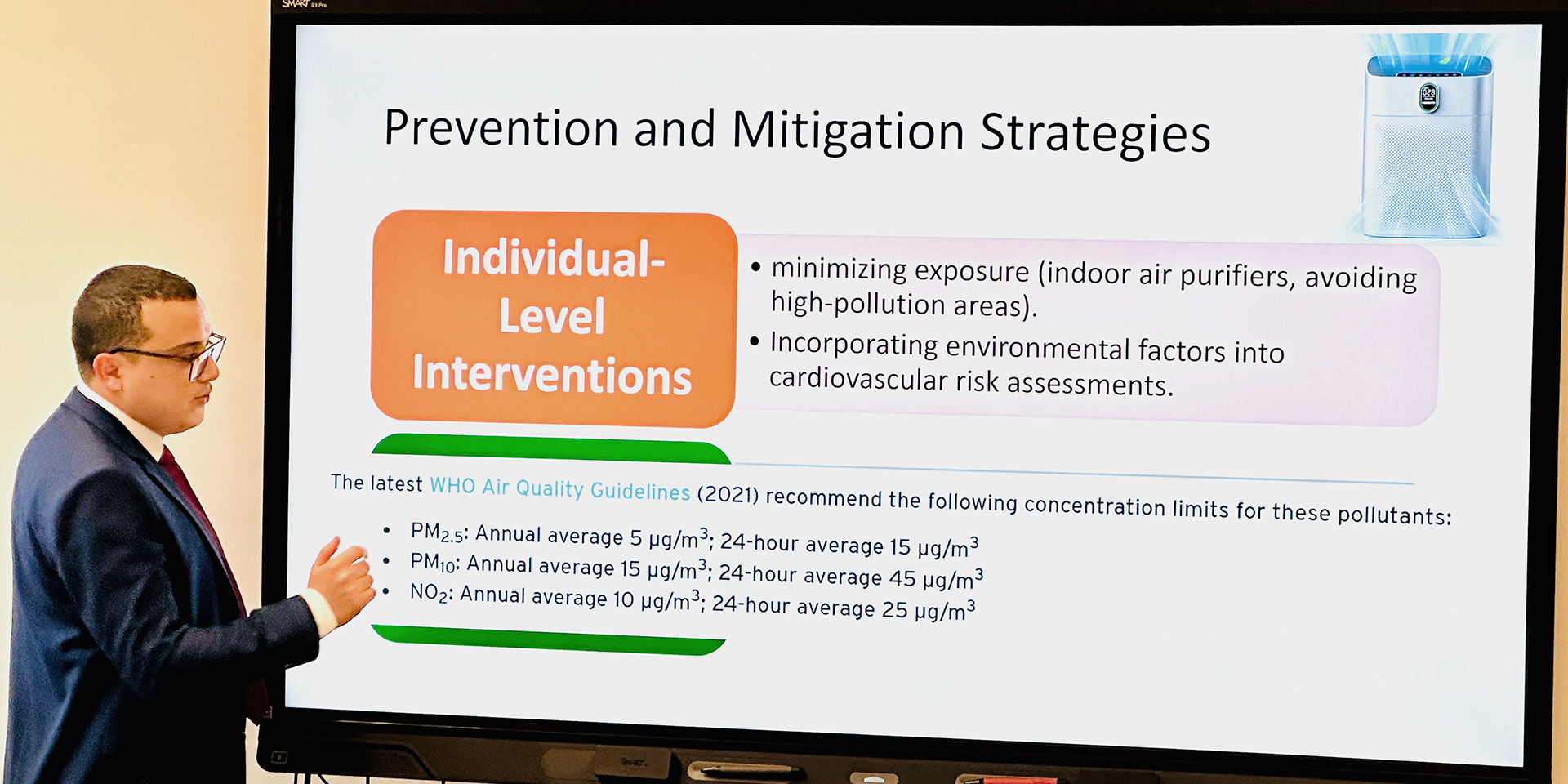When the Smartphone Warns of Air Pollution
Exchange of Tunisian medical and computer science researchers and students on the “DAAD AirFit” project at emergenCITY at TU Darmstadt
Exchange of Tunisian medical and computer science researchers and students on the “DAAD AirFit” project at emergenCITY at TU Darmstadt

From 20 to 23 November, Bernd Freisleben, emergenCITY Directorate member and Professor of Computer Science at University of Marburg, organized a joint workshop on the AirFit and emergenCITY projects in the rooms of the LOEWE Center emergenCITY at TU Darmstadt. German and Tunisian scientists from the project, which is funded by the German Academic Exchange Service (DAAD) in the Ta’ziz Science Cooperations Program, are working together to develop an intelligent recommendation system that links health data with air quality parameters in order to provide personalized recommendations to people with different diseases. It will be used in Sfax, one of the most polluted cities in Tunisia. The research approaches are also of interest to emergenCITY scientists.
“AirFit is looking at the potential impact of air quality on diseases and is installing corresponding sensor boxes or using mobile air quality sensors in Sfax in Tunisia,” Bernd Freisleben explained the procedure. “In addition, affected people wear smartwatches that measure various medical parameters.”
The aim is to develop an intelligent, personalized system that continuously monitors air pollutants, climate and health data as well as people’s medical profiles in order to send personalized warnings and recommendations to their smartphones. This can help to improve quality of life, especially for people with chronic diseases.

Dr. Aiman Ghrab gave a lecture on the topic “From Smog to Stroke: Cardiovascular Impact of Air Pollution’” Photo: emergenCITY, Vanessa Winkels
The workshop dealt with the question which effect air quality can have on certain diseases, including heart disease, mental disorders and neurological diseases. Students, doctoral students, lecturers and professors from the University of Sfax and the Digital Research Center in Sfax in Tunisia from the fields of medicine and computer science came together in Darmstadt to discuss this with Bernd Freisleben.
Afef Mdhaffar, assistant professor at the University of Sfax and project leader in Tunisia, emphasized the importance of the workshop: “This workshop brings together health experts, environmental experts and computer scientists. The synergy between these different fields leads to valuable insights and innovative ideas that significantly improve our efforts on the AirFit project”.
Emna Guermazi, a research assistant on the project, has spent the last two months conducting research in Bernd Freisleben’s working group at the University of Marburg. She said: “I am fascinated by the potential opportunities identified in the workshop to use, collect and analyze medical data in Tunisia using AI methods.”
emergenCITY scientists have already benefited from the exchange of experience with AirFit. For example, sensor boxes are also being developed in the emergenCITY mission “Digital Heinerblock” to measure environmental parameters such as air quality and ambient noise. “I am working with Matthias Hollick and his research assistant Frank Hessel in emergenCITY on this. For example, my colleagues have developed AI methods for recognizing “urban sounds” in residential areas that run on the emergenCITY sensor boxes,” Bernd Freisleben said. “The AirFit results on air quality in connection with diseases could also be of interest to emergenCITY.”